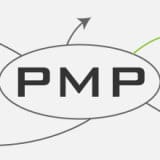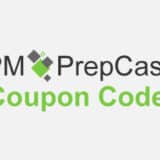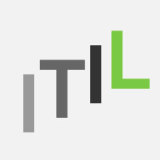PMP Certification Study Notes 13 – Project Stakeholder Management
UPDATED for the new PMP Exam in 2023. Happy learning!
Introduction: This part of the PMP exam study notes (already updated/will be updated for new PMP Exam in 2023) is based on Section 13 of new PMBOK® Guide 6th Edition. The study notes have been rewritten to reflect the latest changes in the PMBOK® Guide for the new PMP Exam. More information on my PMP certification exam preparation can be found at my PMP exam and certification journey (with free PMP study resources and tips) here.
Please note that the study notes below is intended to include only the most important or esaily confused PMP concepts. It is by no means complete in the sense that one can rely on it to be fully prepared for the PMP Exam. Aspirants are advised to make use of this piece of study notes for revision purposes. Wish you PMP success!
Article Highlights
Project Stakeholder Management
- stakeholders are groups/individuals who may affect/be affected by the project
- identify stakeholders is a continual process throughout the project lifecycle as some stakeholders may become irrelevant while new stakeholders may be identified as the project evolves
- the Project Manager is responsible for the engaging and managing the various stakeholders in a project
- identify stakeholders, communicate and engage them, manage expectations and focus on satisfaction
- stakeholder satisfaction is a key project objective
Identify Stakeholders
- Inputs: Project Charter, Business Documents, Project Management Plan, Project Documents, Agreements, EEF, OPA
- Tools & Techniques: Expert Judgement, Data Gathering, Data Analysis, Data Representation, Meetings
- Outputs: Stakeholder Register, Change Requests, Project Management Plan Update, Project Documents Update
- identify stakeholders and document the importance/influence (=active involvement) /impact/interest/involvement of stakeholders/groups of stakeholders
- stakeholders from procurement process and operation process needed to be included
- agreements are used for determining external stakeholders such as the seller
- Data Gathering Tools:
- Questionnaires and surveys
- Brainstorming
- Data Analysis Techniques:
- stakeholder analysis techniques
- Interest, rights (legal or moral rights), power/interest, power/influence or impact/influence grid, salience model, prioritization, etc.
- stakeholder analysis techniques
- Data Representation Tools:
- Power/interest grid, power influence grid or impact/influence grid (3 ‘I’s: importance, interest, influence)
- determine the stakeholders’ hot buttons (what response in specific situations) and develop support strategies
- stakeholders have the greatest influence in the initial stage of the project
- stakeholder analysis matrix is part of the stakeholder management strategy (output of Identify Stakeholders Process)
- Salience Model: describing stakeholders based on the power (influence), urgency and legitimacy
- document only influential stakeholders if there is a large number of stakeholders
- document the impact using a power/influence grid, power/interest grid, influence/impact grid, salience model
Plan Stakeholder Engagement (formerly Plan Stakeholder Management)
- Inputs: Project Charter, Project Management Plan, Project Documents, Agreements, EEF, OPA
- Tools & Techniques: Expert Judgement, Data Gathering, Data Analysis, Decision Making, Data Representation, Meetings
- Outputs: Stakeholder Engagement Plan
- strategies to engage stakeholders throughout the project lifecycle
- Stakeholder Engagement Plan contains: current/desired engagement levels, scope and impact to stakeholders, interrelationships, communication requirements and forms, how to update the plan
- The distribution of this plan requires precautions as the engagement level of stakeholders is a very sensitive information
- Data Analysis Tools:
- Assumptions and constraint analysis
- Mind mapping
- Root cause analysis
- Stakeholder Engagement Assessment Matrix: (C-current level, D-desired level)
- SWOT analysis
- Engagement Level
- Unaware
- Resistant: resistant to change
- Neutral
- Supportive: supportive of change
- Leading: actively engaged in project success
Manage Stakeholder Engagement
- Inputs: Project Management Plan, Project Documents, Agreements, EEF, OPA
- Tools & Techniques: Expert Judgement, Communication Skills, Interpersonal and Team Skills, Ground Rules, Meetings
- Outputs: Change Requests, Project Management Plan Update, Project Documents Update
- ultimate aim is to increase support and minimize resistance from stakeholders by addressing issues with a view to increasing the success of the project
- communicate and work with stakeholders to meet their needs/expectations and address issues
- build trust and resolve conflicts, negotiation skills, communication skills
- need to communicate bad news/issues in a timely manner (not to hide, not to delay)
- the communication requirements of individual stakeholder are recorded in the Project Communication Plan
- PM may call upon the sponsor for assistance
- Ground rules are created to set the expected behaviour of project team members and other stakeholders (for stakeholder engagement)
- the Issue Log (Action Item Log): to identify issues/define impacts, owner (most important element) and priority/with the due date
Monitor Stakeholder Engagement (formerly Control Stakeholder Engagement)
- Inputs: Project Management Plan, Project Documents, Work Performance Data, EEF, OPA
- Tools & Techniques: Data Analysis, Decision Making, Data Representation, Communication Skills, Interpersonal and Team Skills, Meetings
- Outputs: Work Performance Information, Change Requests, Project Management Plan Update, Project Documents Update
- monitor overall stakeholder relationships and adjusting strategies to achieve the desired level of stakeholder engagement
- Decision-Making Tools:
- Multicriteria decision analysis
- Voting
Most Popular PMP Certification Exam Articles
- My Exam Prep Tips and Free Resources (I got 4P and 1 MP)
- How to Get 35 Contact Hours Fast and Easy?
- Detailed Comparision of online PMP Courses
- Over 1000+ FREE Quality Mock Exam / Practice Questions
- A FREE Guide to Formulas and Calculation (with explanation and sample questions)
- 47 Commonly Confused Terms with detailed explanation





 Hi, my name is Edward Chung, PMP, PMI-ACP®, ITIL® Foundation. Like most of us, I am a working professional pursuing career advancements through Certifications. As I am having a full-time job and a family with 3 kids, I need to pursue professional certifications in the most effective way (i.e. with the least amount of time). I share my exam tips here in the hope of helping fellow Certification aspirants!
Hi, my name is Edward Chung, PMP, PMI-ACP®, ITIL® Foundation. Like most of us, I am a working professional pursuing career advancements through Certifications. As I am having a full-time job and a family with 3 kids, I need to pursue professional certifications in the most effective way (i.e. with the least amount of time). I share my exam tips here in the hope of helping fellow Certification aspirants!






Your study material is a good one to revise after reading PMBOK for more than 2 times. I believe SWOT analysis is only for identifying risk and you mentioned in plan stakeholder management. Please correct me if I’m wrong
1. Can you expand on when the management strategy is decided-upon for each different SH group? If the Power-Influence grid is used during ID Stakeholder, then that grid is preset with four management strategy. 2. Why is the Salience model and Power/Influence grid used during ID SH but the Engagement Level and Engagement Assessment Matrix are used in Plan SH Management?
To put it short: this is because these are the time-tested wisdoms 😛
Wish you PMP success!
Hi, For stakeholder management, I know how to keep them info, but High power/ high interest, how often would you send the info?
PM book suggest interactive/ push, but do we info them every change? weekly update? important update only?
The same with High power/ low interest. How would you report them ? Please specify
If you would like to ask if there is a guideline in the PMBOK Guide / PMP Exam for the kind and frequency of stakeholder management for High power/ high interest and High power/ low interest, sorry there isn’t. The PMP Exam will only test you on the concepts rather than the exact execution of project management tasks.
As every project is different, you may ask your High power/ high interest and High power/ low interest stakeholders directly on what is expected of in terms of communication. There is not a set rule for these. Thanks!
Hi Edward,
yesterday I passed the PMP Exam above target. For my preparation I used your site really a lot. It was a great help and I would recommend it to everyone preparing for PMP. Especially I liked the Study Notes. The last two weeks prior to exam I mainly used the study notes and the free exams that you listed.
Many thanks and best regards from Germany
Oliver
Congratulations Oliver! You should be very proud of your achievements! Thanks for letting me know that the materials I wrote here are useful to your exam prep.
Great content
Great summary. I’m currently studying for the PMP exam, and I keep coming back to you site (which is awesome). I really like the way you group this information.